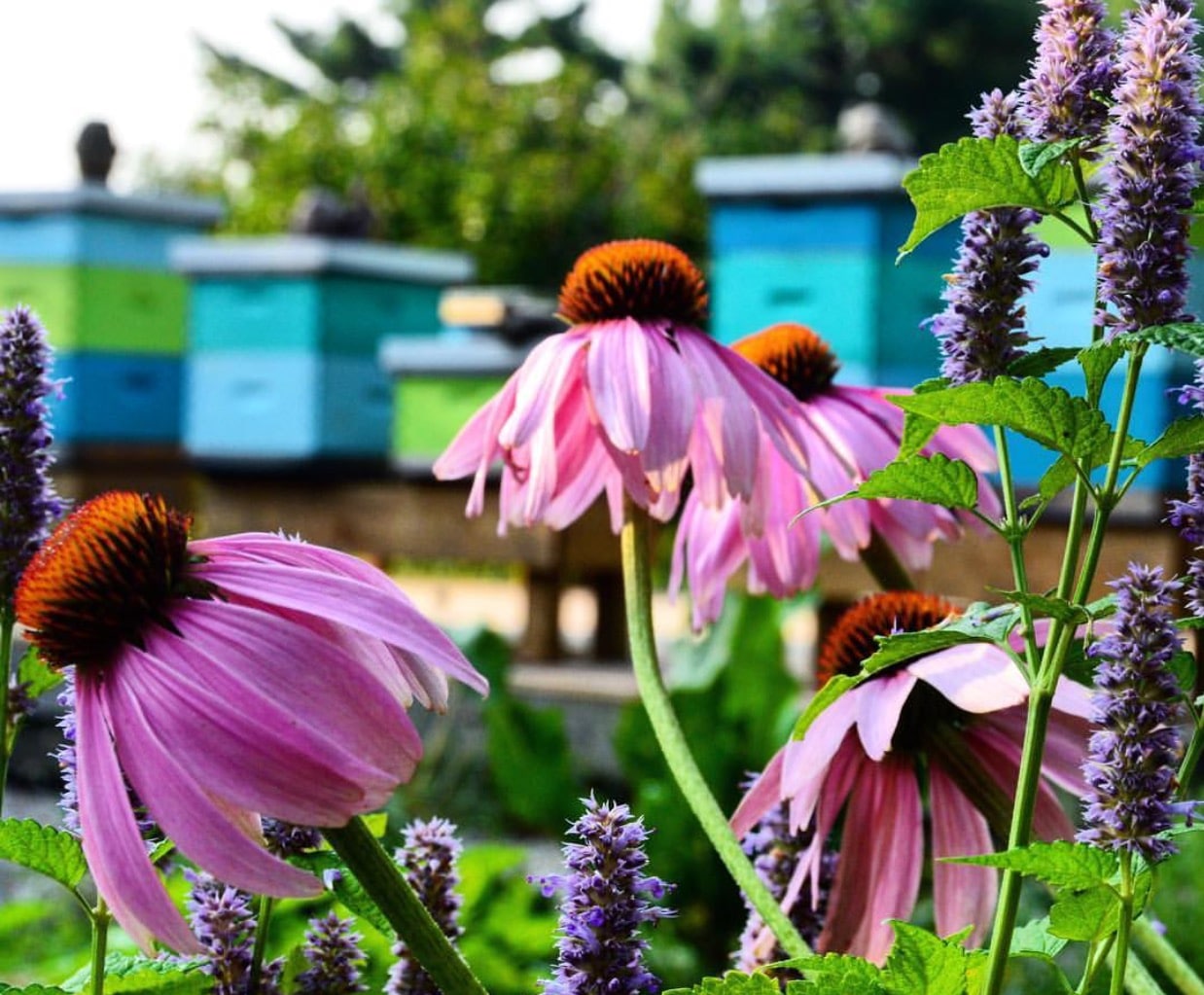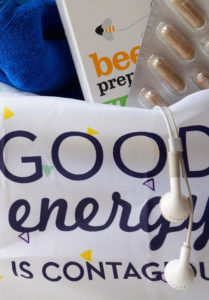
07 Mar Nutritionist’s TIps- natural relief for hay fever symptoms
by Nutritional Therapist Angelique Panagos and Unbeelievable
Allergy season is not to be sneezed at! Hay fever symptoms vary from person to person and it can be debilitating. Here are a few hay fever helpers to get you feeling better.
Block it: Rather than hide indoors this summer (though it may help on high pollen days – keep a watch on the local weather report until your symptoms settle!), grab your wraparound shades and dab a little balm or shea butter onto your nostrils. This will reduce the number of pollen, spore and grass molecules you have to contend with. After all, hay fever is simply your immune system overreacting; staging a histamine-fueled attack on its perceived invaders! You may also look to wash your hair and clothes more often, drying clothing indoors to further minimise exposure.
Avoid dairy & banana: When summer days are spent behind an endless stream of tissues, the last thing we need is more mucus! Both dairy and banana are known mucus-forming foods, along with excess sugar. A great excuse to experiment with anti-inflammatory almond and oat milks. A word of note: soya milk may negatively affect those suffering from Pollen-Food Syndrome (AKA ‘Oral Allergy Syndrome’). If you believe you may have this condition, you/your client should consult your GP or a qualified nutritional therapist. Of course, whatever alternatives you pick, look for unsweetened options. Better still, make your own!
Low inflammation: Anyone prescribed corticosteroids for extreme hayfever will know these medications are focused on reducing our inflammatory response. The good news? We can do this through our diets by reducing or eliminating our intake of inflammatory foods. Gluten, red meat and sugar sit at the top of our to-limit list. Again, there are so many great alternatives here; I’d encourage everyone to favour natural, whole food options rather than stocking up on packaged gluten-free breads and artificially sweetened items.
Get some Cs! Lots of Cs! For Vitamin C is a natural allergy slayer, reducing blood histamine levels for hours at a time. Load up on fruits and vegetables of every colour. The colours are important here, with each providing different antioxidant benefits. Oranges, tomatoes, strawberries, peppers, spinach and asparagus should all make your Vitamin C shopping list. For optimal intake, consume raw. That said, Pollen-Food Syndrome sufferers will see their symptoms exacerbated by raw fruits, vegetables and nuts. While cooking well eliminates the allergen, again, you/your client should consult a GP if you believe you may be affected.
EFA helpers: we want to support our respiratory tracts, aiding lubrication and reducing any mucus membrane inflammation. Put simply? Eat plenty of Omega-3 fats! You’ll find these in oily fish (think salmon, mackerel and sardines) as well as sunflower and pumpkin seeds. Omega-6 fats are also of benefit here, giving you a great excuse to nibble on some almonds, brazils nuts and cashews. I love to sprinkle these on my vitamin C salads and blend into summer gazpachos. Aim to consume a small portion of good fats in each of your main meals, and mix up the source!
Hydrate & soothe: Is there anything water doesn’t do? It’ll come as little surprise that a regular intake of fluids helps to flush seasonal toxins through your body. The rule of thumb: sip 35ml per kg of body weight daily. Aim to get most of your intake from plain, filtered water and unsweetened, caffeine-free herbal teas. Scratchy throats will also benefit from ginger tea. This is so easy to make fresh though is also readily available in loose blends and bagged teas. Lemon and ginger is always a winning combo!
Queen quercetin: The bioflavonoid quercetin naturally inhibits your histamine production (actually blocking some of the action of the releasing cells), while lowering your inflammatory response. So it’s no surprise this plant compound reigns supreme in natural allergy defence. As well as eating more quercetin foods, including citrus fruits, onions, sage, parsley, apples and olive oil, you can supplement this compound. Should I mention red wine is also rich in quercetin?! As ever, keep your alcohol intake minimal and opt for organic vino where possible.
Brilliant bromelain: if quercetin were an allergy superhero, bromelain would be its high powered sidekick! Bromelain, an enzyme found in pineapple fruit, has been clinically proven to hold anti-inflammatory, antihistamine and decongestant action. It’s a go-to solution for those whose allergies spark breathing difficulties as well as anyone prone to sinusitis, as it helps clear the airways. Add some fresh pineapple to your smoothies, chop into salads or make an exotic summer dip. Bromelain can also be supplemented.

Bee Prepared: If there’s one product that’s always within my allergy arsenal, it’s Unbeelievable Health’s Bee Prepared. I’ve had great personal and clinic success with this natural supplement, comprising two of our famed anti-histamines: quercetin and vitamin C (thank you black elderberry)! Furthermore, the immune system receives some much-needed support from reishi mushrooms as your body’s inflammatory actions are calmed by the bee propolis base. It’s free from gluten, sugar, soy, yeast and GMOS, making it a fabulously safe family option, with the formula suitable for ages 4 and above.
Getting to the root of it: It’s got to be said, seasonal allergies often stem from deeper immunity issues, nutritional deficiencies and food intolerances. If you want to eradicate allergies for good, you’re going to have to get to the bottom of an individual’s triggers.
Find Bee Prepared immune formulas in health stores including Revital, Planet Organic, & online globally via Bodykind.
Article originally published by the College of Naturopathic Medicine
Image by Heritage Bee Co




